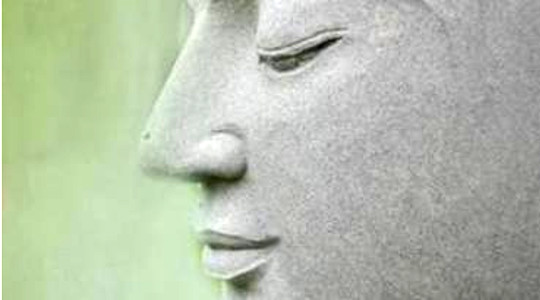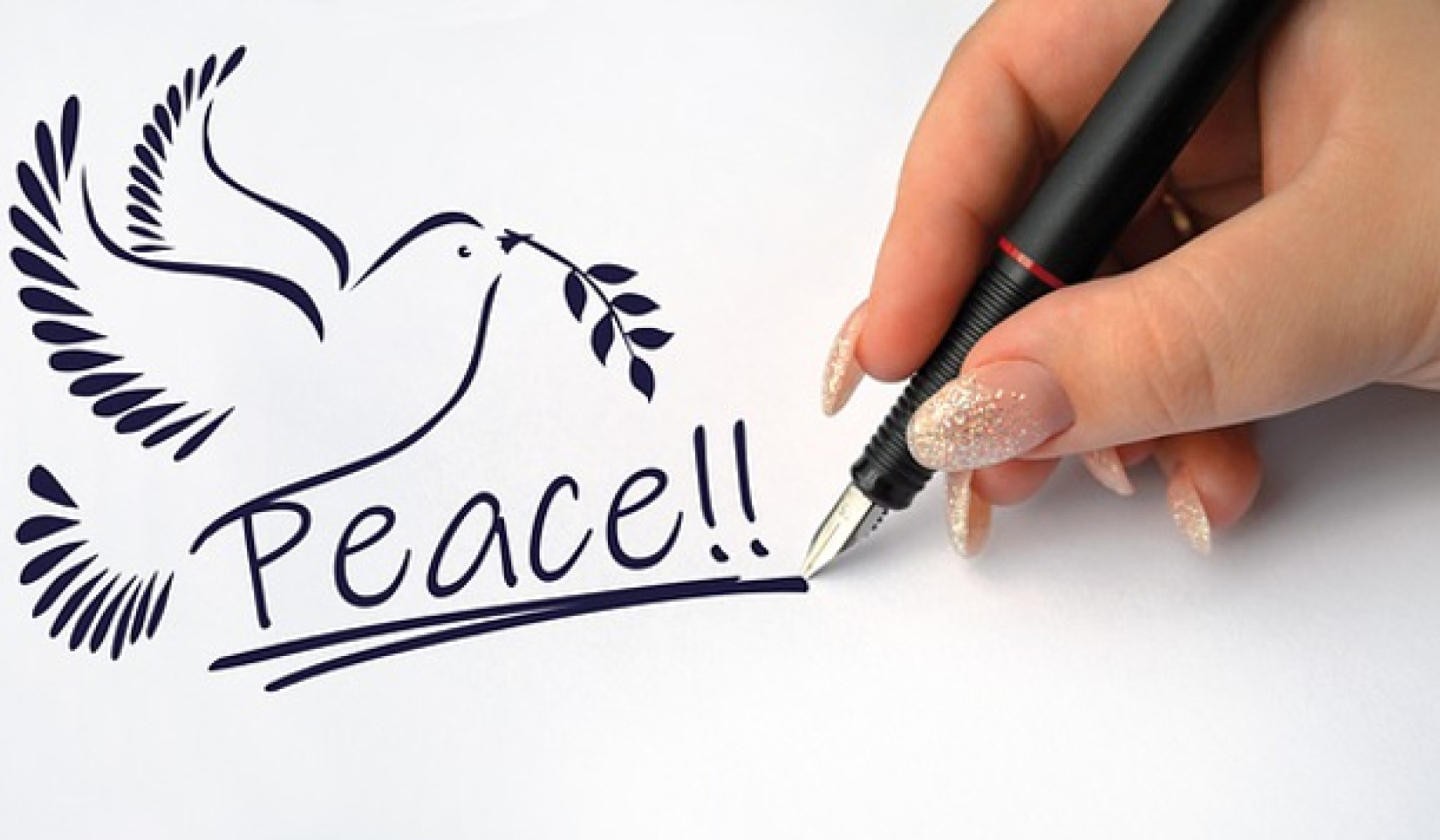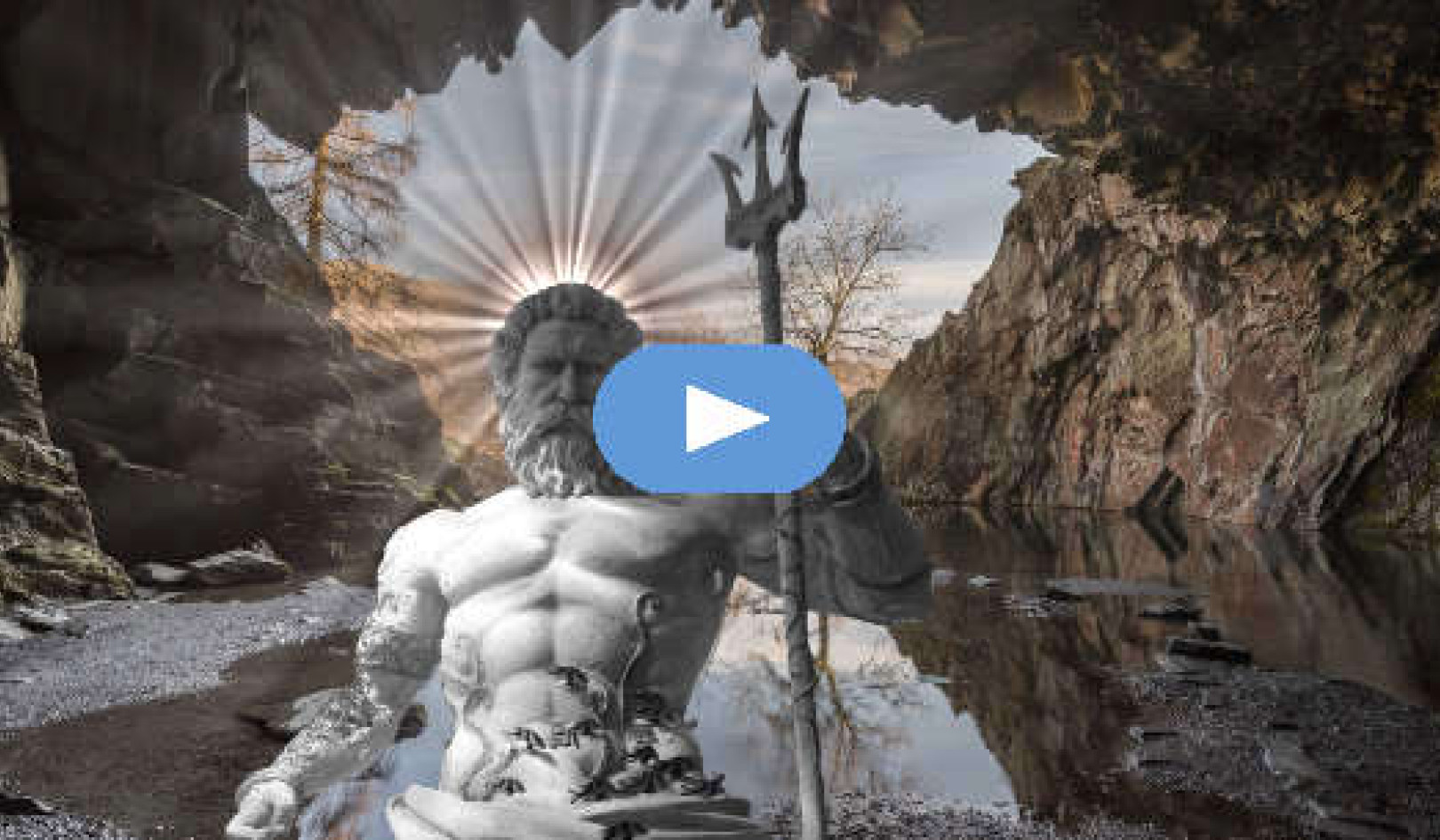
One of the best ways I have found to try to quiet my mind and open my heart is through meditation. I usually sit in the morning in a comfortable chair in my den for fifteen to twenty minutes; with closed eyes, breathing deeply, following the inhale and exhale of my breath, I gently detach from the constant chatter of my mind.
Next to the chair where I sit in meditation is my puja table, where I keep various items of spiritual significance to me -- including a stone-carved Buddha. Buddha is sitting in a relaxed, yet contemplative position and there is a big smile on his face.
Our Minds Have Become Our Masters
Is he laughing at me as I sometimes get caught up in the irony of struggling to be quiet and contemplative? Is he gloating because he knows something that I don't know, which enables him to be so calm and serene at those times I am thrashing about? I think not -- his smile is really one of unbearable compassion for the poignancy of our human predicament.
Through a combination of social conditioning, personal experiences, and the pressures of everyday life, we have allowed our minds to become our masters. In this role, it is a hard taskmaster. We seem to constantly roller coaster between joy and misery as our minds control the journey. We board our train of thoughts and go speeding down the tracks on a wild ride of "pasting" and "futuring" rather than being able to enjoy and appreciate the here and now.
We Are Inclined To Live Life By Cause & Effect
Our inclination to immediately react to situations is triggered by our habitual patterns of thought. They seem to govern our lives. We, paradoxically, have utilized our creativity to invent the maze in which we are now lost, and from which we have forgotten how to free ourselves.
If we really look at it closely, we have to laugh at ourselves. You really have to feel compassion for someone who is really the godlike creative cause of their own life effect. Am I in charge, or a victim of outside circumstances? That's a good question.
Look at the way we "live" our lives. Ours is a heavy drama. We grasp for what we don't have, like the "perfect" relationship or the "best" job. We resist what we do have, like our daily challenges to accept life as it comes. We aren't even happy when we get what we want, because we are human beings living in a world of form and time, and thus everything ultimately changes. If we cling to anything, this attachment to the status quo will ultimately create for us an experience of suffering.
Live Life By Being Free
The purpose of the game is really to be free; not avoiding or seeking, but using everything that comes to us in our world of physical form as our curriculum to achieve liberation. This is playing the game as impeccably as we can, and yet not being attached to the results of what we do. It's called "being in the world, and not of the world", because a part of us knows it's not real, even though another part pretends it is.
The Buddha explained it for us when he experienced enlightenment. What became crystal clear to him were his four noble truths:
1. There is suffering.
2. The cause of suffering is the clinging nature of our mind. We resist what is.
3. There's a way to cure our suffering.
4. The way is conducting one's life in accordance with Buddha's noble 8-fold path, which includes right thinking, right livelihood, right action, etc.; all methods to learn to accept and allow ourselves to flow with life in a positive way.
Why is it so difficult for us, even after we have become intellectually aware of how the game really works? We constantly seem to be balancing so precariously on our tightrope between divinity and humanity.
The divine is the larger part of us that knows we create our own reality and that what we label as "problems" are really self-created challenges which are opportunities for our growth. At this elevated level of our beingness, we have pierced our illusion of separateness and we realize that we are all interconnected.
Our struggles, trials, and tribulations represent our ongoing drama of being presented with learning experiences and dealing with them as best we can. Our humanity, however, is not interested in these intellectualities because daily life is sometimes very difficult and we are hurting. Our inability, to accept and enjoy life as it comes and to trust that whatever is happening is best for our growth, translates into pain and suffering.
It's like we are dancing on a "razor's edge" trying to balance our humanity and divinity. If we are light, and playful, and gentle with ourselves, we don't get cut. If we are heavy and serious and caught up in our drama, we will be injured and experience pain.
The key seems to be that we have a choice and we are in control of our personal choice process. It's not somebody or something out there that is doing it to us, it's just the way we have conditioned our minds to judge and react to these external situations.
Since the key is our mental programming, we need to be deprogrammed in a positive and constructive way so that the true essence of our beingness is revealed. Whenever we look at children and remember our early childhood, that inherent perfection is revealed. It's one of spontaneity, trust, exuberance, openness, and the joy of living in the moment.
Playing The Game Of Living Life
One of the best descriptions of the game of life we all are playing is provided by Ram Dass. He says we are "the one, playing as the two, and then returning to the one". What this means is that when we start our physical human existence we are unconscious oneness. We are that empty boat talked about in the Tao, which is uncluttered with any mindstuff, and is still our inner essence of pure joy, love, and unconditional acceptance.
As we go through life we are conditioned by the events of our lives and our unskillful ways of dealing with them so that we forget our inherent perfection. Our focus becomes exterior; as if our happiness depends on what's out "there". We change, and the game becomes a tedious adversary contest of me against you, mine and yours and woe is me -- what will go wrong next.
Our inner self is veiled with negative conditioning, and is hidden inside this sticky cocoon of limitation and duality. Our experience of life goes from light to heavy, and our trust in the perfection of the game and our inherent godness vanishes. This becomes conscious duality.
We then reach a point in our lives where we have the opportunity (challenge) to wake up and gain awareness of what the game really is about. When we reach this moment of awareness, we label it as a peak experience, enlightenment, or proof of being on the path. No matter what the label, we recognize the fact that we are doing it to ourselves and that we are and have always been the creative cause of our own experience of reality. We also recognize that our point of power always lies in the present moment.
We have a choice to flip our lens of perception and view our everyday experiences of life as all being "grist for the mill" on our journey of awakening. Rather than cataloging and labeling our experiences as good or bad, depression or elation -- we can view everything as input into our computer of experience: The more input we receive, the more skillfully we can respond to future situations.
At the same time we can maintain an overall viewpoint that it's all a game: we invented it -- we control it --and its objective is just to continuously give us clues as to areas in which we have more work to be done to rid ourselves of the clinging and resistance of our minds (our stash of attachments).
This gives us the choice to continue to play the game, outwardly appearing to be the same, but inwardly being focused in a totally different way. This becomes our lifetime journey back to conscious oneness.
Living Life Is Inherently Simple
The good news is that once we reach this point, our flight is on automatic pilot. We don't have to do anything because if we need work in a particular area of our lives, the necessary "lesson" will be manifested for us. Once this happens, if we are able to skillfully deal with it we don't need to learn that lesson anymore. If not, we get other opportunities to work on it until we resolve it and can then move on to another level of awareness.
Our promotion is assured -- the only pressure in this college of higher knowledge is self-imposed. We constantly receive lessons in trust and patience -- as we try to play the game to the best of our ability without being emotionally attached to the results of our efforts. What a teaching this can be!
Why Is Buddha Smiling?
No wonder Buddha is smiling. If he was physically alive, it would probably be more appropriate that he be convulsed with laughter at our self-created heavy dramas. But no, he is after all a high being who understands our struggles, since he went through them during his years of wandering, prior to enlightenment.
He knows the game is so deceptively simple. His heart must be filled as he views our struggles. He seems to say to us, so lovingly, and with incredible good nature, "Be gentle with yourselves. Relax, accept life as it comes. Trust that the best is finding you. You are safe and loved. You are not alone. Smile, don't worry, be happy. Enjoy and celebrate life -- remember, you are all Buddhas, pretending not to be!"
Recommended book:
What Would Buddha Do?: 101 Answers to Life's Daily Dilemma
by Franz Metcalf.
 A unique approach to Buddhism, What Would Buddha Do? shows that anyone can find guidance in Buddha’s teachings. It demonstrates how to use the advice of Buddha to become a better person at work, at home, and in society. Presented in a reader-friendly format, with each page offering a question, a Buddhist quote, and advice from the author, What Would Buddha Do? applies this question to 101 problems confronted in everyday life and reveals how Buddha’s teachings are still meaningful after 2,500 years.
A unique approach to Buddhism, What Would Buddha Do? shows that anyone can find guidance in Buddha’s teachings. It demonstrates how to use the advice of Buddha to become a better person at work, at home, and in society. Presented in a reader-friendly format, with each page offering a question, a Buddhist quote, and advice from the author, What Would Buddha Do? applies this question to 101 problems confronted in everyday life and reveals how Buddha’s teachings are still meaningful after 2,500 years.
Info/Order Paperback Book. Also available as a hardcover and as a Kindle edition.
About The Author
Martin E. Segal is an attorney by vocation; a student of higher consciousness by avocation; and a publisher, writer, and lecturer on subjects of personal growth and spirituality. He is the author of: Guru is You, Peeling the Sweet Onion, and Blame It On the Buddhists.
























